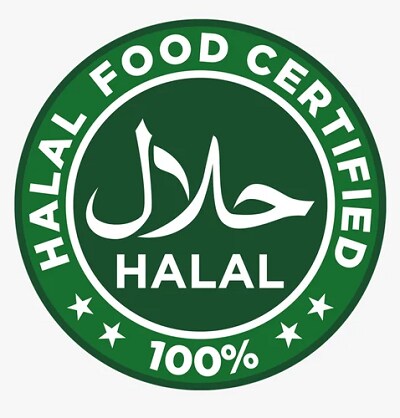Review of Global Halal Certification Requirements

Almost 2 billion people worldwide—about 1 in every 4—identify as Muslims, adhering to halal food requirements. Halal certification is crucial for Muslim consumers to confirm the products meet halal requirements. This creates significant opportunities in halal food standards, as well as in the growing markets for flavor and fragrance formulation, cosmetics, and pharmaceuticals.
Islam considers all food as halal unless classified as haram (forbidden or unlawful). Haram foods include pork, carnivorous animals, scavengers, and certain other species. Additionally, permissible animals must typically be slaughtered according to halal methods. Islam also prohibits intoxicating substances, notably alcohol, although trace amounts (typically less than 0.5% to 0.1%) may sometimes be permissible in halal flavor ingredients or fragrance components used in formulations.
Despite common religious foundations, halal requirements differ across regions due to local interpretations and distinct certification protocols. These variations significantly affect halal product formulation. For example, stunning animals before slaughter is acceptable under some standards but prohibited by others. Differences may extend to specifics such as acceptable animal types, stunning practices, or permissible substances. Insects are generally deemed haram, but locusts are halal in regions with established traditions of consumption.
Major halal certification bodies:
- UAE/GSO (United Arab Emirates/Gulf State Organization): Adopted primarily by Bahrain, Kuwait, Oman, Qatar, Saudi Arabia, Yemen, and the United Arab Emirates (UAE may also follow SMIIC)
- SMIIC (Standards and Metrology Institute for Islamic Countries): Based out of Turkey and used primarily by the Organization of Islamic Cooperation (OIC) countries which include Turkey, UAE, Algeria, Morocco, Cameroon, Mali, Pakistan, Sudan, Somalia, Tunisia, Jordan
- JAKIM (Jabatan Kemajuan Islam Malaysia - Malaysia’s Department of Islamic Development): Originated in Malaysia but also used by other countries such as China, South Korea, and Japan and others
- BPJPH (Badan Penyelenggara Jaminan Produk Halal): Halal Product Assurance Organizing Agency in Indonesia
- MUIS (Majlis Ugama Islam Singapura—Islamic Religious Council of Singapore): Singapore and neighboring regions
Some countries, including Pakistan, Iran, Brunei, and Thailand, maintain their own halal standards, typically applicable only domestically.
These varying standards impact food & beverage producers, as certification schemes differ in managing ingredient segregation, cross-contamination prevention, audit scope, duration, and frequency, and even the qualifications required of auditors, such as FSSC 22000, SQF, and BRCGS. Certifying bodies themselves require accreditation by national halal authorities.
Regulatory environments add complexity. Indonesia, a country with more than 245 million Muslims, mandates that all imported food and beverages must meet halal BPJPH certification standards. Government Regulation No. 42 of 2024 on the Implementation of the Field of Halal Product Assurance restricts all imports of food to halal certified only. Indonesia only accepts materials certified by halal bodies that have been accredited by BPJPH. By October 17, 2026, this requirement expands to food contact materials, cosmetics, and pharmaceuticals. Products intended for Indonesia, even if not explicitly labeled halal, must still be halal certified to be imported. The BPJPH requirements also require rigorous supply chain verification. Firms interested in selling into the Indonesian market should work closely with a BPJPH-accredited halal certifier to ensure they meet the strict Indonesian halal requirements.
Similarly, Turkey is enhancing halal import controls by aligning strictly with SMIIC standards and considering mandatory electronic registration portals for all halal imports. Economic incentives have supported the move of many EU firms to manufacturing in Turkey, so any firm that works with Turkey, including the import of raw materials, should ensure they are meeting the SMIIC standard and are prepared for import registration.
Given these complexities with different halal standards, it can be daunting for any firm to ensure halal certification. Partnering with reputable and accredited halal certification agencies is essential. Such partnerships help firms navigate global halal requirements, ensuring alignment with international standards and facilitating smoother market entry.
Discover our selection of high-quality Flavor & Fragrance standards.
Related Products
To continue reading please sign in or create an account.
Don't Have An Account?